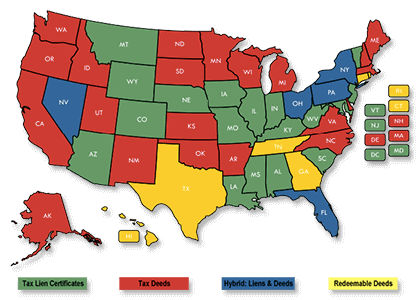All Categories
Featured
Table of Contents
If you want the tax lien repossession process, you should contact an attorney so you understand and evaluate the risks of this sort of financial investment. - tax lien property investing
Tax obligation lien sales are one means that cities and counties try to recover a few of the general public bucks they've invested keeping these residential properties abandoned by private owners. Yet, as we'll explain in this write-up,. When real estate tax are thought about delinquent, regional federal governments normally concentrate on offering notification of misbehavior and attempting to gather the unpaid amounts from the owner.
This process normally takes years - real estate tax lien investments. If a proprietor has actually left and hesitates to pay taxes or preserve the residential property, the city should invest tax dollars to maintain the building. These costsboarding up the building, trimming overgrown turf and weeds, replying to fire and authorities calls on the residential property, and moreadd up

Owners who have dropped on difficult times absolutely require every initiative to maintain them out of delinquency and in their homes. Usually, if the building is vacant and shabby, we need to assume the proprietor has actually chosen to desert their interest in the residential or commercial property and that they are "unwilling" to pay (though situations earlier in the process might have compelled their hand).
Tax Lien Tax Deed Investing
Take, for instance, a single-family home where the proprietor has time out of mind walked away. For years the city government has actually needed to action in and remove waste disposed in the backyard, board up the doors and windows, and react to telephone calls concerning immoral activity on the property. All these services set you back the city government taxpayer bucks.
In lots of states, those prices can be accumulated similarly as the unsettled taxes, yet not in all. (Something that Neighborhood Progression highly advocates for.) Eventually, the overall financial debt ends up being higher than what the home might cost. In a tax obligation lien sale (or tax obligation certificate sale) the neighborhood federal government generally holds a public auction where the winning bidder agrees to pay the most cash for the right to implement the tax lien, starting with a minimum bid of at the very least the taxes possessed, plus suitable rate of interest, charges, and prices.

When a federal government markets the tax obligation lien they are usually selling to an exclusive buyer the city government's authority to accumulate the debt for upfront settlement of the tax obligations owed. The buyer's purchase usually consists of the capability to earn future passion, along with recoup relevant fees and costs sustained by the purchaser, if the property proprietor pays the tax obligation financial obligation.
This is, essentially, privatization of a core government function: tax collection. Tax obligation lien sales are specifically bad when it involves uninhabited, deserted, and scrubby homes because they extend the period before a property can be relocated into the hands of a brand-new, extra responsible owner. Personal tax obligation lien customers hold the financial debt, however they do not have the titlethe lawful right to ownership of the propertyand oftentimes, they have no rate of interest in obtaining it.
Tax Liens Investing Risks
Taking into consideration budget cuts, city governments in numerous states have actually reduced internal property tax collection and enforcement initiatives and looked to tax obligation lien sales as a quick mixture of profits - tax lien investing in texas (invest in tax lien certificates). Many areas select or are mandated by the state to market tax liens because it outsources collection and typically generates extremely required money earlier in the collection process
By transferring the neighborhood federal government's rate of interest in and enforcement of the tax lien to a personal purchaser, city governments lose a lot of their adaptability: adaptability to acquire uninhabited homes that the exclusive market does not desire, or to help the owner avoid shedding their residential or commercial property. With uninhabited residential properties, there is a much higher possibility that the exclusive customer isn't curious about the residential property itself.
Tax obligation lien sales can cause damage in traditionally disinvested locations. In a depressed housing market, less proprietors are able to redeem the amount of the debt offered to a tax lien customer. These locations are ripe for a different kind of tax obligation lien investorspeculative owners seeking to acquire buildings on the affordable by foreclosing on the property tax lien, bleeding what bit equity is left by renting a low-grade home to susceptible lessees, and afterwards deserting the residential property when they've gained back their financial investment.

Not all state regulations offer local federal governments the power to interfere in this cycle. In either case, the property remains uninhabited and in limbo, all the while enforcing significant expenses on its next-door neighbors and taxpayers. It's easy to understand that several city governments transform to tax lien sales since they aid money necessary civil services.
If the local federal government instead markets the residential or commercial property (aka the "tax action"), rather than the tax obligation debt, then they are in control of what takes place to the residential property and the enforcement process if the owner remains to not pay the real estate tax owed. The federal government will certainly provide the owner a practical time to repay the tax financial debt, after which the federal government will foreclose its interest in the tax obligation lien and the owner's right of redemption.
From their beginning, these public auctions were venues for capitalists to profit through exploitation. In early 20th-century cities, infamous "tax obligation sharks" like Chicago's Jacob Glos and New York's Charles Wiltsie amassed fortunes by acquiring up ratings of tax obligation liens on houses, billing their owners excessively high total up to remove the lien, or waiting till the due date for negotiation passed and asserting the action.
Tax Lien Investing Pros And Cons

Phone calls to abolish tax obligation lien sales and overhaul tax obligation delinquency legislations have periodically emerged. Often, they have been available in action to instances of inadequate, frequently elderly property owners that shed their homes to unscrupulous tax obligation buyers over little tax obligation debts. With a couple of exemptions, state legislatures have actually stood up to architectural reforms (how does investing in tax liens work).
Those that have settled their home loans (primarily senior persons or individuals that had actually acquired a family home) need to also find the cash to pay real estate tax. This explains why 70 percent of the homes cost tax lien sales are owned outright. It is well for states to embrace an even more humaneand more effectivesystem for property tax obligation enforcement.
Latest Posts
Tax Sale Property Listing
Homes Behind On Taxes
Real Estate Tax Lien Investments